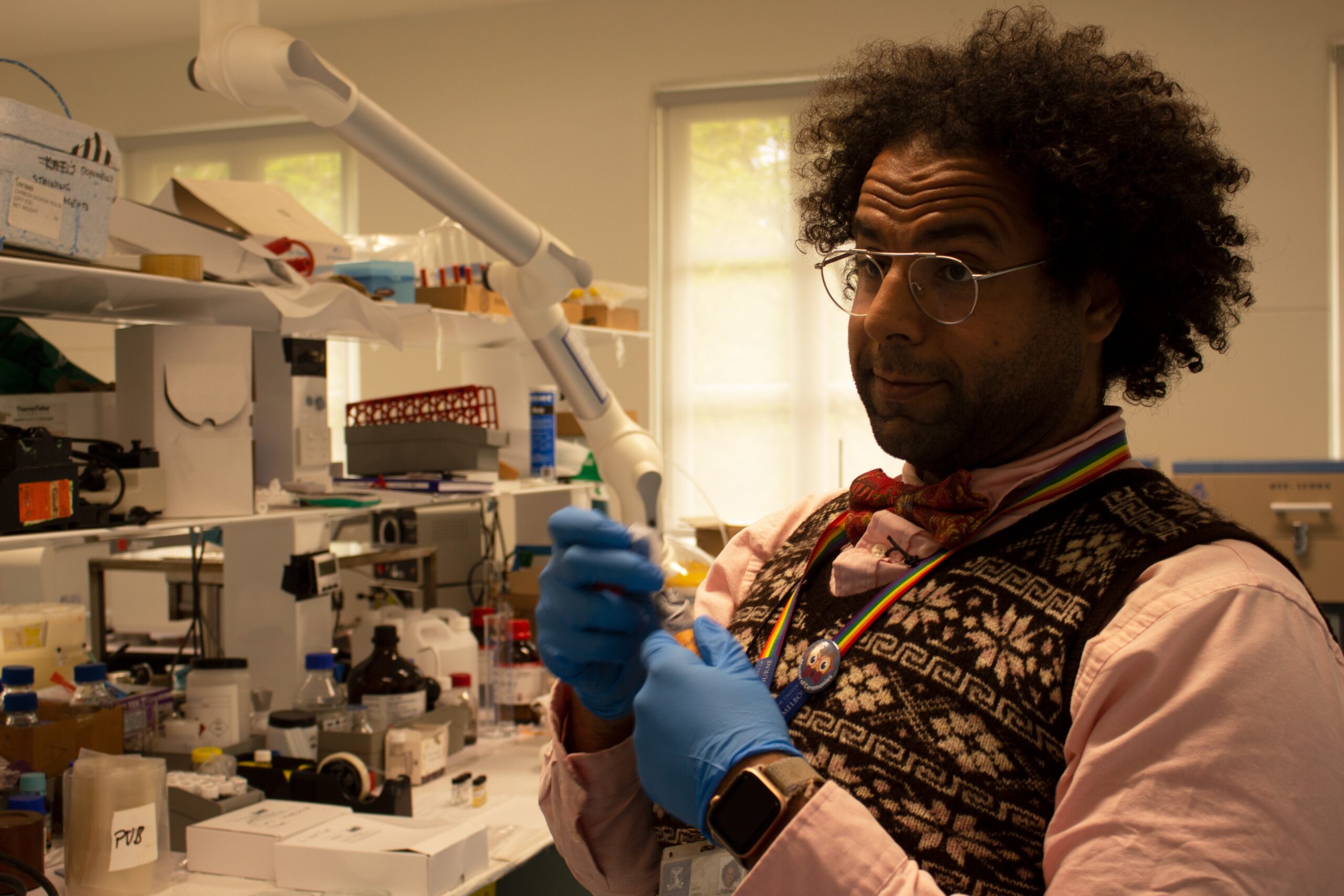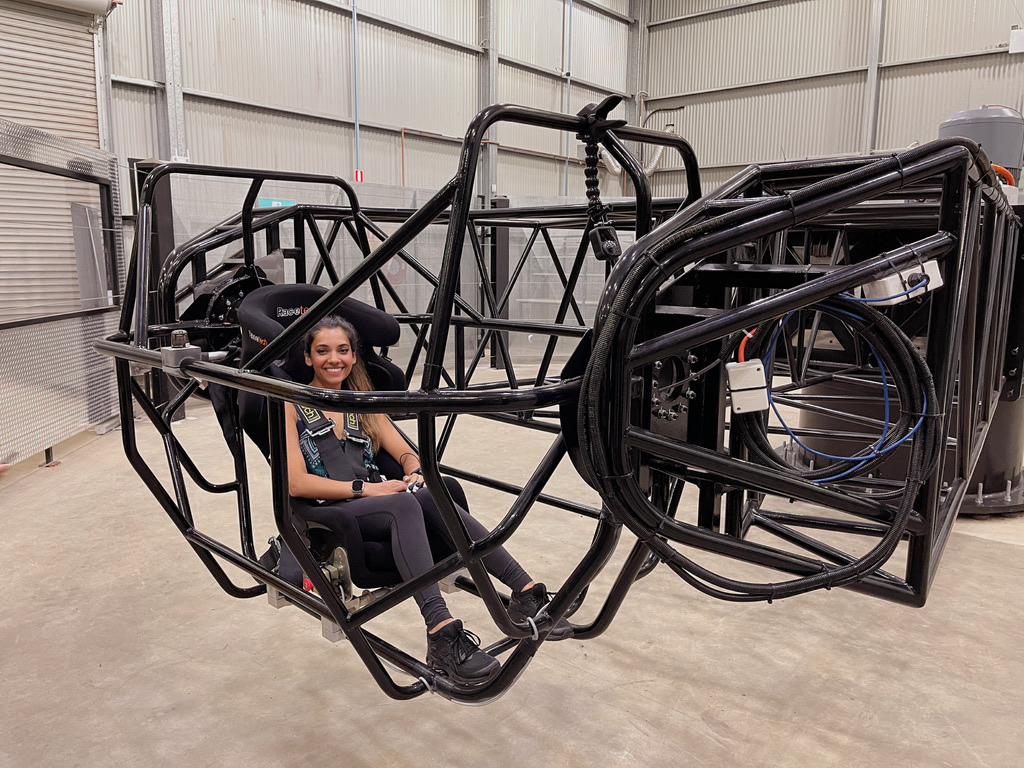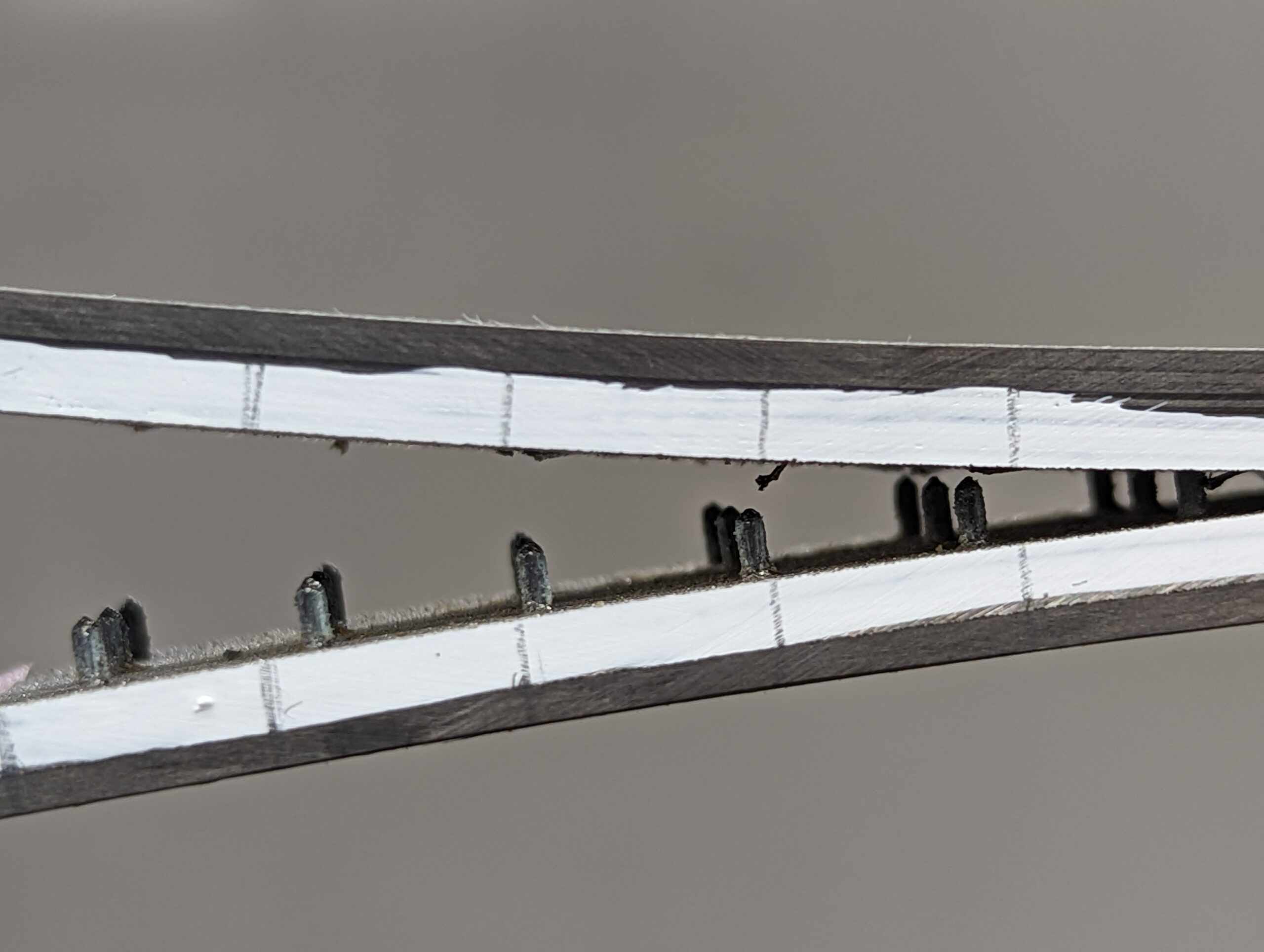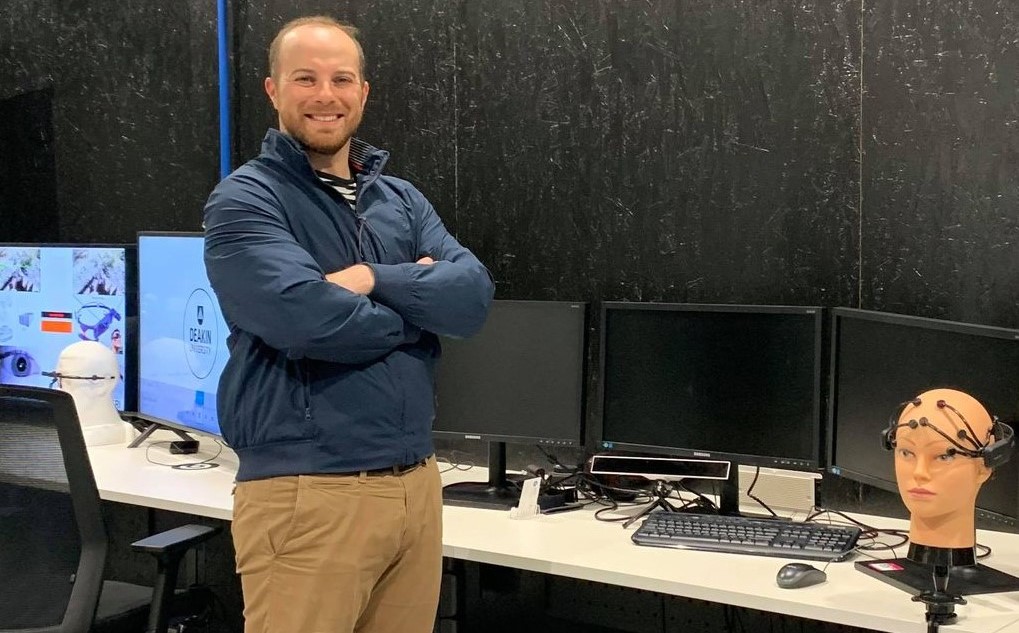Dr Mohammad Taha attributes success to a fierce work ethic and a genuinely open mind. The research fellow was recently named one of Engineers Australia’s 30 Most Innovative only two years after completing a PhD.
Taha works in the area of novel materials, developing a self-modifying coating which adapts to its environment and limits heat radiation. The coating could potentially be applied to windows to reduce energy consumption, to memory and optical devices, sensors communications, flexible electronics, smart-fabrics and used in defence situations. Building upon existing technology, Taha’s product addresses the current problem of scalability by using a new processing method to reduce costs of production which will enable market adoption. Taha’s exciting project was aided by a DSI Collaborative Research Grant.
An early-career researcher at the University of Melbourne in the Faculty of Engineering and Information Technology (FEIT), Taha works across a few labs in the Departments of Electrical and Electronic Engineering, Chemistry, and Physics. Dr Taha’s work required them to spend a substantial amount of their time working with and learning from the researchers in the Chemistry Department and although not a chemistry graduate, Taha jokes that an honorary chemistry degree might be forthcoming! This is reflective of Taha’s truly interdisciplinary approach to research and determination to tackle scientific problems with persistence and curiosity. Committed to a career in science since childhood, by age nine Taha knew they wanted to be an engineer and pursue a doctorate. But Taha’s focus does not come at the expense of broad interests – never being seen without a fiction or sci-fi book in hand and also a love of writing poetry. And it’s this, coupled with the mantra of “never accept that there’s no solution”, which defines Taha’s approach to research. ‘To be a good scientist, you need to see imperfections and problems everywhere,’ Taha says. ‘I love questions, genuine questions where they are a true request for illumination. The more expansive, the better’.
Dr Taha’s project started with the support and trust in their ability to deliver in their home Departments of Electrical and Electronic Engineering. ‘Without departments and mentors who support and enable EMCRs to lead and take responsibility for what they are passionate about we are not preparing the next generations of researchers’ Taha says. Their project also required establishing meaningful collaborations with colleagues in physics and chemistry. ‘Crossing disciplines means you don’t get stuck as there’s always a perspective, a conversation to be had,’ Taha says. ‘We’re all looking at the same thing, but in a different way.’ On their ease with traversing disciplines, Taha says, ‘People assume when you knock on someone else’s door, that the answer will be “no”. In fact, it’s much more often a “maybe”. And a “maybe” I can work with. I’m a realist, but I have faith in people, and most people, I believe, generally want to help’.
Passionate about the environment and sustainability, Taha, a non-binary queer person of colour, is a champion for change and a dedicated advocate for a more inclusive STEM sector. They are the deputy co-chair of the Australian Academy of Science EMCR forum working to improve conditions and opportunities for early-to-mid career researchers. ‘The biggest challenge for early career scientists is time and resources,’ Taha says. ‘The DSI Collaborative Research Grant gave me the gift of independence. It allowed me to dedicate myself completely to my research which in turn, shortened the timeframe. As a researcher at the beginning of a career, you’re usually contributing to someone else’s project. The DSI grant was wonderful as it was a chance to answer the question of “what are my priorities?”’
Valued at $50,000, the DSI Collaborative Research Grant Scheme provides seed or exploratory funding to enable industry and/or DST Group to undertake collaborative research with DSI Participant universities. Details and timing of funding programs can be found on the DSI website.
To learn more about this project, or any other research collaboration projects facilitated by DSI, please contact us at dsi.info@defencescienceinstitute.com.



